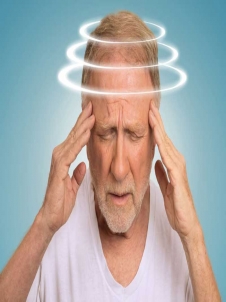Cervicogenic Dizziness and its differential diagnosis. Assessment and treatment.
Présentation de la formation
Nombre de module(s) : 1
Cervicogenic Dizziness and its differential diagnosis. Assessment and treatment.
What you will learn with the course:
Understand what cervicogenic dizziness is and how it differs from other types of dizziness.
Interview a person with neck pain and dizziness
Perform a physical assessment of the cervical spine with emphasis on assessment of the upper cervical spine.
Assess people with prolonged symptoms after a concussion injury
Treat patients with cervicogenic dizziness, prolonged post-concussion dizziness, and BPPV
Objectif(s)
On completion of this session you should be able to:
Understand what cervicogenic dizziness is and how it differs from other types of dizziness.
Interview a person with neck pain and dizziness
Perform a physical assessment of the cervical spine with emphasis on assessment of the upper cervical spine.
Assess people with prolonged symptoms after a concussion injury
Treat patients with cervicogenic dizziness, prolonged post-concussion dizziness, and BPPV
Durée
1 day
Programme
9.00 Registration
Part A: Cervicogenic Dizziness
9-9.30 Lecture
? Review of dizziness and its classification, types and causes
? What is cervicogenic dizziness and how it differs from other types of dizziness
? Recognize other causes of dizziness such as cardiovascular dizziness, vestibular problems, Benign Paroxysmal Positional Vertigo (BPPV), vertebro-basilar insufficiency (VBI) and migraines
? How we identify cervicogenic dizziness
? Use of short questionnaire (Reid et al 2017) and phone APP to identify those with cervicogenic dizziness.
? How to interview a person with dizziness and neck pain
? Case study (will be followed through the examination for clinical reasoning
9.30-10.30 Performing a physical assessment of cervical spine, emphasizing upper cervical spine -Practical session
? Active range of motion (ROM) with over pressure including upper cervical spine
? Palpation of soft tissues
? Passive accessory palpation examination of the cervical spine with passive accessory inter vertebral movements (PAIVMS) (central and unilateral and transverse passive accessory glides) as described by Geoff Maitland
? Passive physiological intervertebral movements (PPIVMS) for upper and lower cervical spine
? Clinical tests to rule in or out cervicogenic dizziness such as the Smooth Pursuit Neck Torsion Test, Cervical Flexion Rotation Test
10.30-11 Coffee
11-11.45 Performing a physical assessment - Practical session (cont)
? Assessment of cervical spine proprioceptive deficits with joint position sense testing (laser),
? Cranio-cervical flexion test (CCFT)
? Balance testing
11.45-12.45 Treatment of patients with cervicogenic dizziness ? Lecture 10 mins then practical session
? Evidence for treatment of cervicogenic dizziness
? Sustained Natural Apophyseal Glide (SNAG) for extension
? SNAG for rotation
? Self-SNAGs
? Passive joint mobilization
12.45-1.30 Lunch
Part B Differential Diagnosis
1.30-2.15 Vestibular dizziness, BPPV, central dizziness (Lecture and prac)
? Assessment of BPPV with Dix-Hallpike manoeuvre
? Epley manoeuvre
? Brandt-Daroff exercises
2.15-3.30 Post-concussion Syndrome: assessment and treatment (Lecture 45 min , practical session 30mins)
Includes vestibular ocular motor screening (VOMS), near point convergence, Optokinetic testing, evaluation of exercise tolerance
Treatment of individuals with prolonged post-concussion symptoms
? Cervical interventions
? Treatment of proprioceptive deficits
? Treatment of ocular motor dysfunction
? Balance exercises
? Vestibular interventions
? Exercise rehab
3.30-4.00 Coffee
4.00 -5.00 (Lecture and practical session)
? Vertebro-basilar insufficiency (VBI) and craniocervical arterial dissection (CAD). Assessment for VBI: including latest guidelines from IFOMPT and Aust Physio Association
? Assessment of ligaments in upper cervical spine e.g. Sharp-Purser, alar ligament and tectorial membrane tests
? Migraine
? Assessment for cardio vascular dizziness
? Questions and Finish
Information(s) complémentaire(s)
Publications by Sue Reid
Book Chapter
Reid Susan, Rivett Darren Anthony, ?A diagnostic dilemma of dizziness?, In Vicenzino, B., Hing, W., Rivett, D.A. and Hall, T. (2011) Mobilisation with movement: The art and the science, Elsevier Australia, Chatswood, NSW, 114-122.
Journal publications
Reid SA & Rivett DA. (2005) Manual therapy treatment of cervicogenic dizziness: a systematic review. Manual Therapy, 10:4-13.
Reid SA, Rivett DA, Katekar MG & Callister R. (2008) Sustained natural apophyseal glides (SNAGs) are an effective treatment for cervicogenic dizziness. Manual Therapy, 13:357?366.
Reid SA, Rivett DA, Katekar MG & Callister R. (2012) Efficacy of manual therapy treatments for people with cervicogenic dizziness and pain: protocol of a randomised controlled trial. BMC Musculoskeletal Disorders, 13:201-208.
Reid SA, Rivett DA, Katekar M & Callister R. (2014) Comparison of Mulligan Sustained Natural Apophyseal Glides and Maitland Mobilizations for Treatment of Cervicogenic Dizziness: a Randomized Controlled Trial. Physical Therapy, 94:466-476.
Reid SA, Rivett DA, Katekar M & Callister R. (2014) The Effects of Cervical Spine Manual Therapy on Cervical Range of Motion, Head Repositioning and Balance in Participants with Cervicogenic Dizziness: A Randomized Controlled Trial. Archives of Physical Medicine and Rehabilitation, 95:1603-12.
Reid SA, Callister R, Snodgrass SG, Katekar MG & Rivett RA. (2015) Manual therapy treatment of cervicogenic dizziness: long-term outcomes of a randomised controlled trial. Manual Therapy, 20:148-156.
Reid SA, Callister R, Katekar MG, Treleaven JM. (2017) Utility of a brief assessment tool developed from the Dizziness Handicap Inventory to screen for Cervicogenic dizziness: A case control study. Musc Science and Practice, 30: 42-48
Reid SA. (2017)Neck Dizziness. Phone App on Android and Apple
Site Officiel : http://www.mathera.be



